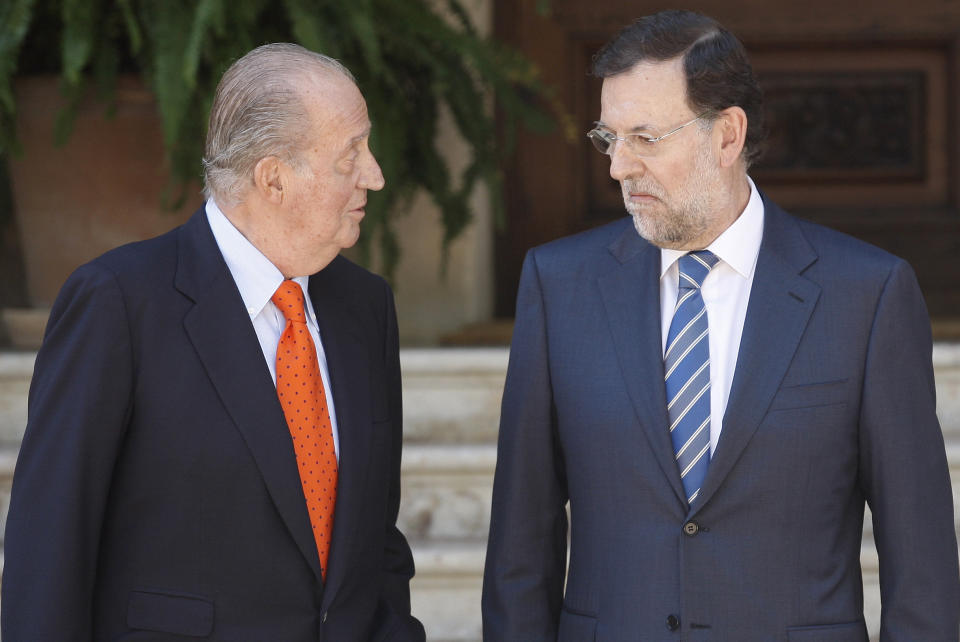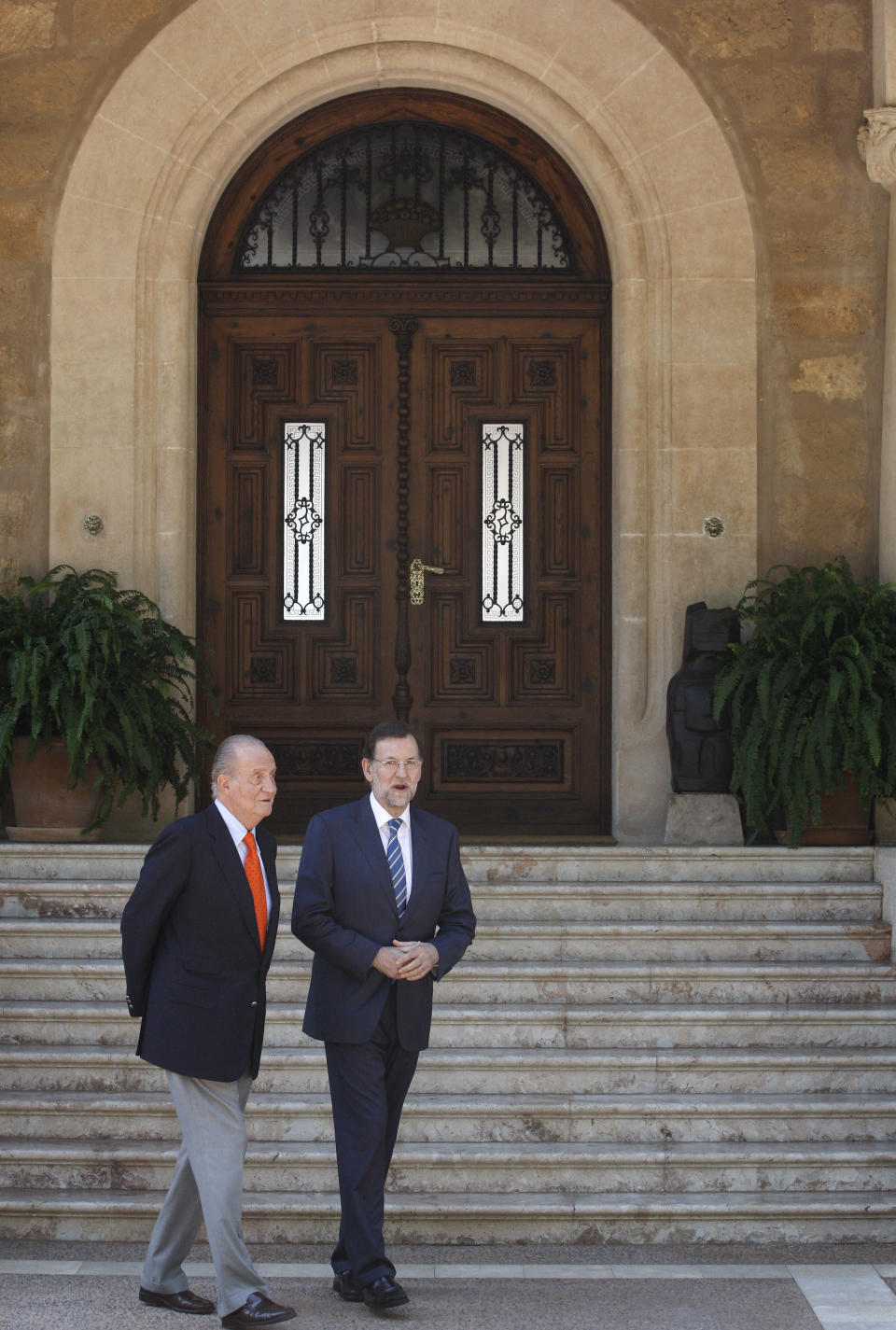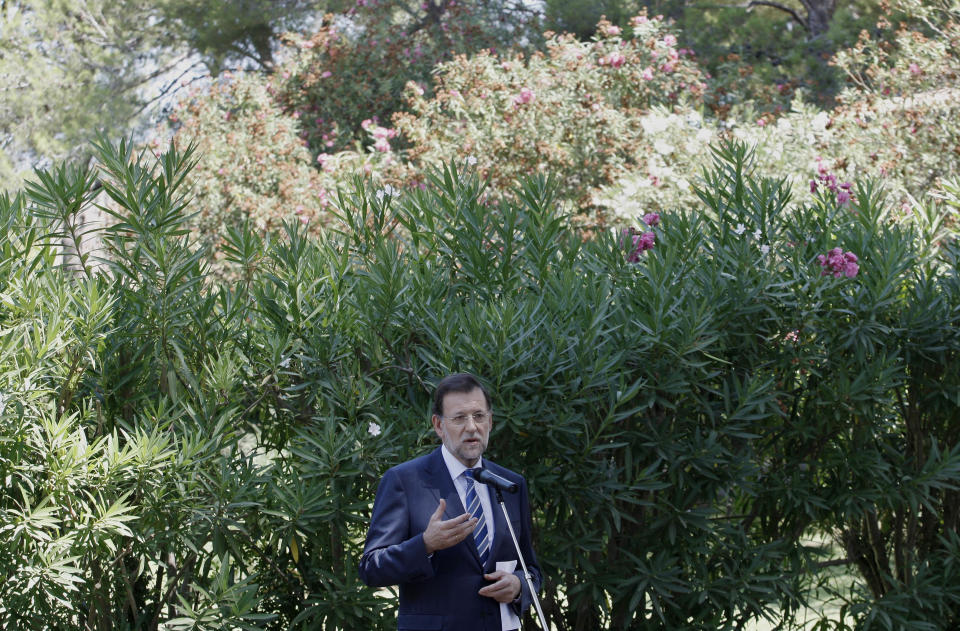Spanish PM says no decision yet on bailout request
MADRID (AP) — Spain's Prime Minister remains tight-lipped on whether he has decided to ask for more financial aid for his country, repeating instead Tuesday that he would wait until the European Central Bank outlines its plans and conditions for buying government bonds before making a move.
"As long as we don't know what decision the ECB is going to make, we won't be making one either," Mariano Rajoy told reporters Tuesday after meeting with King Juan Carlos at the monarch's summer residence in Palma de Mallorca.
Spain is in a double-dip recession with nearly 25 percent unemployment and is struggling to manage its finances as it tackles problems in its banking sector and among its indebted regional governments. Its borrowing costs have soared to levels deemed unsustainable in the long-run and many feel it's is only a matter of time before it formally asks for a bailout, following in the footsteps of Greece, Ireland, Portugal and Cyprus.
Two weeks ago the ECB's president, Mario Draghi, said the bank would intervene to help lower a country's borrowing costs if its government applies for rescue aid from the bailout funds set up by the 17 euro countries. But such a request would come with conditions, such as extra savings cuts.
Following Draghi's announcement, Rajoy opened the door to such a deal but said the government needed the ECB to clarify its position.
"There's no news until we know for sure what the ECB is going to do," he said.
Rajoy said the ECB had several options opened to it that would interest Spain, including buying bonds on the secondary market to bring down borrowing costs or facilitating loans to banks directly so as not to further burden the country's sovereign debt.
Spain's banks have been locked out of financial markets because of investor doubts about their financial health. The government has already asked for loan of up to €100 billion ($123 billion) from eurozone partners for its most troubled lenders although it has yet ask for any of it.
Rajoy said that Spain had asked for that money "because it seemed reasonable and if it (a new loan) seems reasonable we will do so again."
Earlier Tuesday, Spain's central bank said the country's banks borrowed a record €375.5 billion ($463 billion) from the European Central Bank during July. That was 11 percent higher than June's level and is another sign of the difficulties afflicting the sector. The figure was more than seven times the €52 billion borrowed in July 2011.
Rajoy said the bank rescue was aimed at getting credit flowing again to businesses and families so as to create jobs.
In an unusual concession, Rajoy said the next Cabinet meeting Aug. 24 would approve an extension of a policy due to expire Wednesday under which long-term unemployed people receive monthly payments of €400 ($494).
Spain has introduced a batch of austerity measures and financial and labor reforms to try to convince EU partners and investors that it is serious about getting its finances in shape.
Rajoy said he intends talking to European Council President President Herman van Rompuy before the end of August and will meet German Chancellor Angela Merkel in Madrid on Sept. 6. On Sept. 20, he will travel to Rome to meet Italian Premier Mario Monti.





